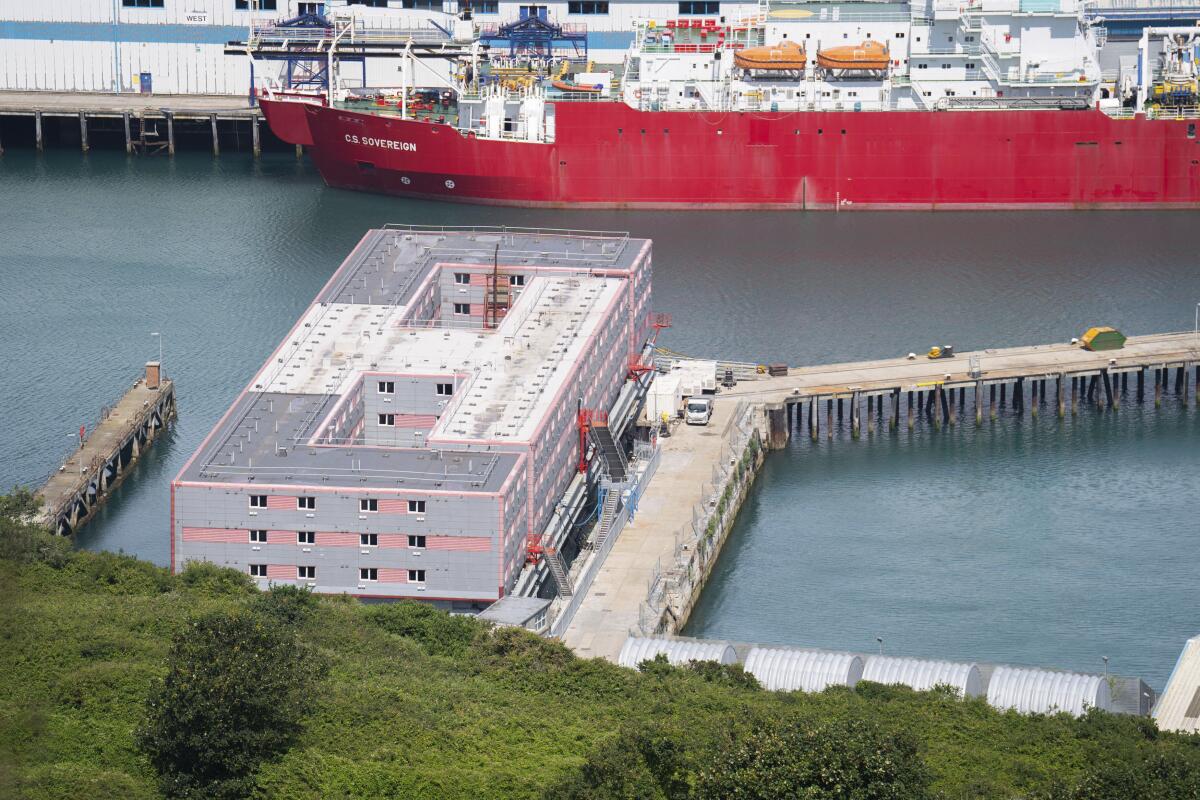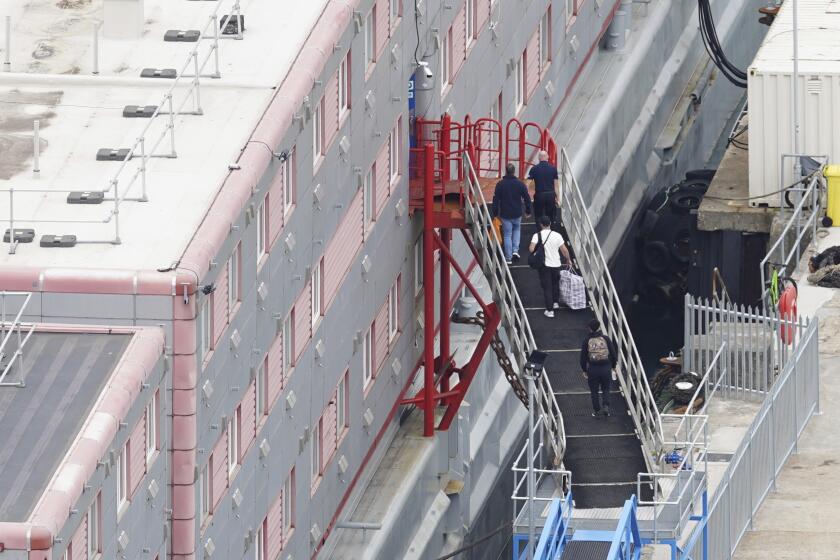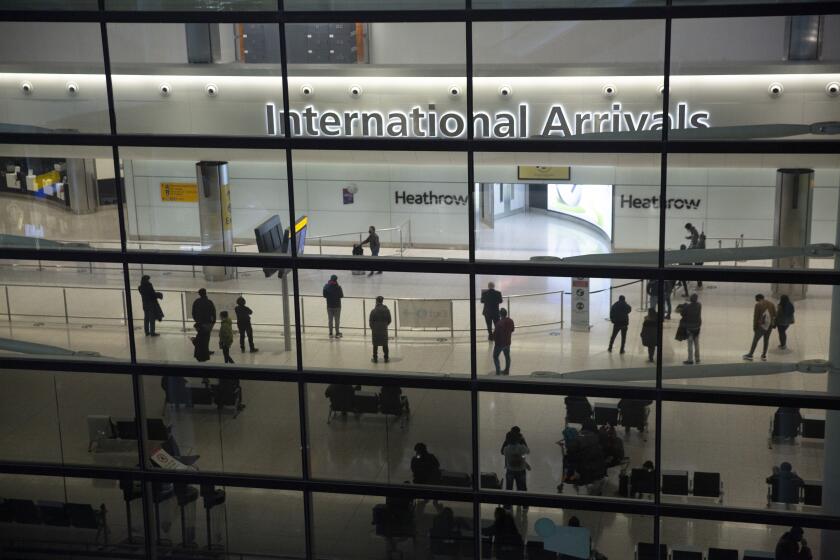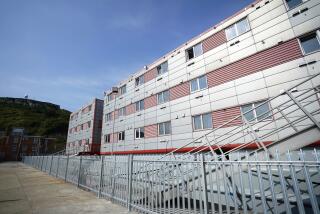Britain’s barge for asylum-seekers faces new setback

LONDON — Britain’s plan to house asylum-seekers on a barge moored off the south coast of England ran into another hurdle on Friday as authorities were forced to evacuate the first residents after Legionella bacteria was found in the water system.
The move came just days after the first men were moved onto the Bibby Stockholm, a floating hostel that can accommodate up to 500 people, as part of a government effort to cut the cost of sheltering the growing number of people applying for asylum in Britain.
“As a precautionary measure, all 39 asylum-seekers who arrived on the vessel this week are being disembarked while further assessments are undertaken,’’ the Home Office, which oversees immigration issues, said in a statement. “No individuals on board have presented with symptoms of Legionnaires’ [disease], and asylum-seekers are being provided with appropriate advice and support.”
Britain has moved some asylum seekers to a barge moored off southern England as it tries to deal with higher-than-forecast numbers of migrants.
Samples from the ship’s water system were found to contain the bacteria that causes Legionnaires’ disease, the Home Office said. Authorities are waiting for the results of follow-up tests and are following advice from the U.K. Health Security Agency about what steps should be taken.
Legionnaires’ disease is a serious respiratory infection caused when people inhale tiny water droplets containing the bacteria. It is not transmitted person-to-person, but is found in the cooling systems of large buildings and water lines that are not in regular use. While symptoms are similar to the flu, Legionnaires’ disease can be treated with antibiotics.
The disease warning is just the latest setback for the government’s much publicized plan to move asylum-seekers onto the Bibby Stockholm from more costly hotel accommodations around the country. In recent weeks, firefighters raised concerns about safety precautions on the barge, and migrant rights advocates questioned whether it was appropriate to house people fleeing war and persecution in such cramped conditions.
A British appeals court has ruled that a government plan to send asylum-seekers to Rwanda in an attempt to deter unauthorized migration is unlawful.
Prime Minister Rishi Sunak has promoted the barge as a cheaper way to house asylum-seekers after the cost of the program ballooned following a jump in the number of applicants and delays in processing their claims. The U.K. is spending about $7.6 million a day on hotel accommodations for 51,000 asylum-seekers, according to the latest government statistics.
According to the U.N. refugee agency, there were more than 167,000 asylum-seekers in the U.K. at the end of last year, up from 62,000 in 2019.
Those figures illustrate why immigration is an increasingly divisive issue in Britain, where the news media carry daily stories about migrants crossing the English Channel in flimsy inflatable boats.
Sunak has made “stopping the boats” a priority as he searches for an issue that will distract voters from the country’s economic woes, labor strife and backlogs in the National Health Service ahead of an election expected to take place next year. His Conservative-led government, which is trailing badly in most opinion polls, has proposed sending asylum-seekers to Rwanda as a way of discouraging people from making the journey, but the plan is stalled in the courts.
The number of people moving to Britain reached a record high in 2022, renewing debate about the scale of immigration and its impact on the country.
The Bibby Stockholm, which the government is leasing from a private company, is normally used to provide temporary housing for oil field workers and others when local accommodations aren’t available. With three stories of closely-packed bedrooms opening off long hallways, the barge resembles a college dormitory. It is equipped with a kitchen, dining area and common rooms.
Steve Smith, chief executive of the migrant charity Care4Calais, said Friday’s news about Legionnaires’ disease simply confirms concerns about health and safety issues on the barge.
“The Bibby Stockholm is a visual illustration of this government’s hostile environment against refugees, but it has also fast become a symbol for the shambolic incompetence which has broken Britain’s asylum system,” Smith said in a statement.
More to Read
Sign up for Essential California
The most important California stories and recommendations in your inbox every morning.
You may occasionally receive promotional content from the Los Angeles Times.













